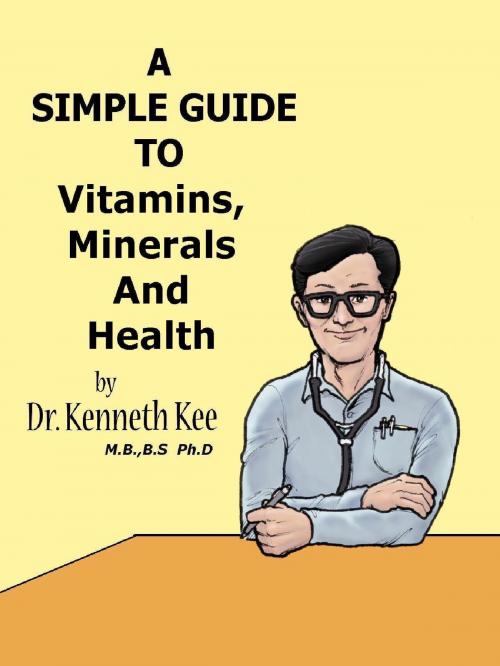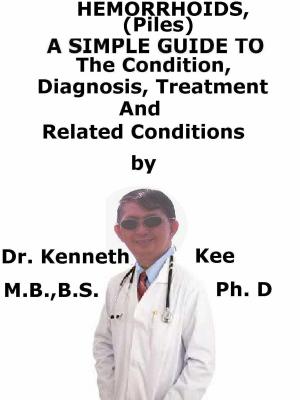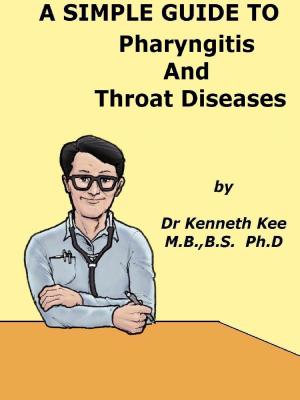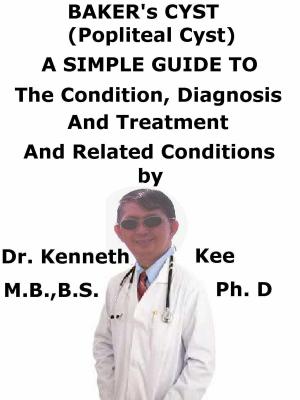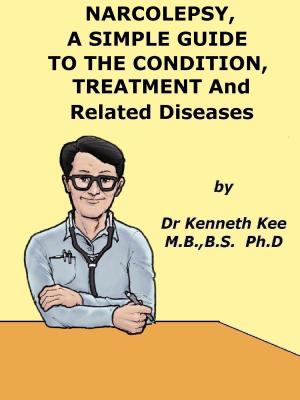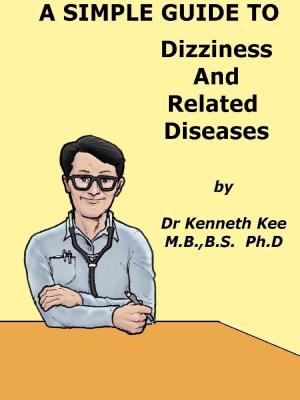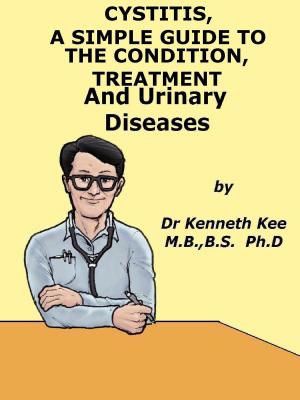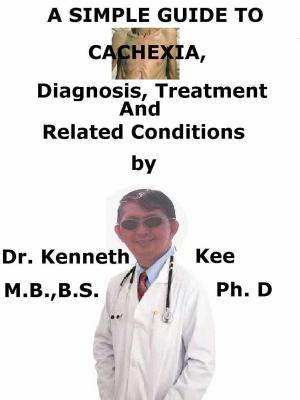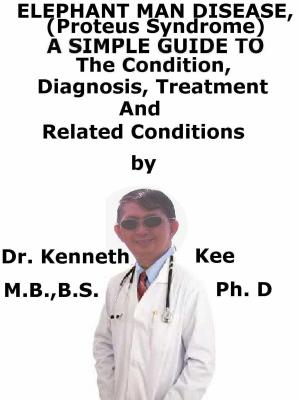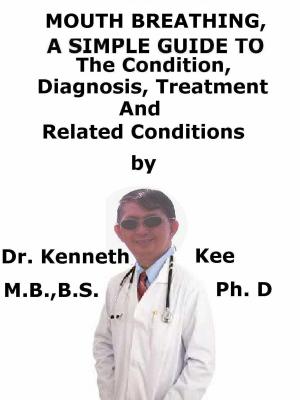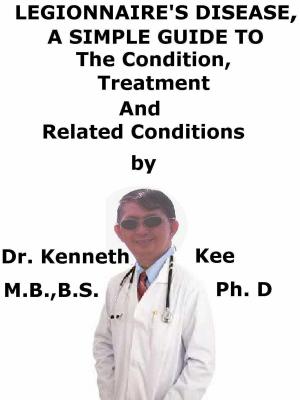A Simple Guide to Vitamins, Minerals and Health
Nonfiction, Health & Well Being, Health, Nutrition & Diet, Vitamins, Medical, Patient Care, Nutrition| Author: | Kenneth Kee | ISBN: | 9781301791521 |
| Publisher: | Kenneth Kee | Publication: | November 12, 2012 |
| Imprint: | Smashwords Edition | Language: | English |
| Author: | Kenneth Kee |
| ISBN: | 9781301791521 |
| Publisher: | Kenneth Kee |
| Publication: | November 12, 2012 |
| Imprint: | Smashwords Edition |
| Language: | English |
Vitamins and Minerals are important hormones and catalysts in the general nutrition of the body.
Vitamins are organic substances which are made by plants or animals.
Minerals are inorganic substances that come from the earth; soil and water and are absorbed by plants.
Humans absorb minerals and vitamins from the plants and animals they eat.
It is important therefore to eat a balanced diet because a balanced diet will provide all the vitamins and minerals that a person need.
The five foods groups are:
-
Bread, cereals, rice, pasta, noodles
Contains carbohydrate, iron, thiamin mainly
Other nutrients are protein, fat, fiber, magnesium, zinc, riboflavin, niacin equivalents, folic acid and sodium. -
Vegetables, legumes
Contains vitamin A (beta-carotene)
Other Nutrients are carbohydrate, fiber, magnesium, iron, vitamin C, folic acid and potassium. -
Fruit
Contains vitamins, especially vitamin C
Other Nutrients are carbohydrate, fiber, and folic acid. -
Milk, yoghurt, cheese
Contains calcium and protein
Other Nutrients are fat, cholesterol, carbohydrate, magnesium, zinc, riboflavin, vitamin B12, sodium and potassium.. -
Meat, fish, poultry, eggs, nuts, legumes.
Contains protein, iron, zinc
Other Nutrients are fat, cholesterol, niacin and vitamin B12..
Vitamins and minerals are nutrients that help the body to grow and develop normally.
To get adequate vitamins and minerals, eat a wide variety of nutritious foods
Eat plenty of vegetables, legumes and fruits; plenty of cereals; lean meat, fish, poultry; milks, yoghurts, cheeses and drink plenty of water
TABLE OF CONTENT
Chapter 1 Vitamins, Minerals And Health
Chapter 2 Vitamin A
Chapter 3 Vitamin C
Chapter 4 Vitamin D
Chapter 5 Vitamin E
Chapter 6 Vitamin K
Chapter 7 Vitamin B1
Chapter 8 Vitamin B2
Chapter 8 Vitamin B3
Chapter 10 Vitamin B5
Chapter 11 Vitamin B6
Chapter 12 Vitamin B7
Chapter 13 Vitamin B12
Chapter 14 Folic Acid(B9)
Chapter 15 Minerals
Vitamins and Minerals are important hormones and catalysts in the general nutrition of the body.
Vitamins are organic substances which are made by plants or animals.
Minerals are inorganic substances that come from the earth; soil and water and are absorbed by plants.
Humans absorb minerals and vitamins from the plants and animals they eat.
It is important therefore to eat a balanced diet because a balanced diet will provide all the vitamins and minerals that a person need.
The five foods groups are:
-
Bread, cereals, rice, pasta, noodles
Contains carbohydrate, iron, thiamin mainly
Other nutrients are protein, fat, fiber, magnesium, zinc, riboflavin, niacin equivalents, folic acid and sodium. -
Vegetables, legumes
Contains vitamin A (beta-carotene)
Other Nutrients are carbohydrate, fiber, magnesium, iron, vitamin C, folic acid and potassium. -
Fruit
Contains vitamins, especially vitamin C
Other Nutrients are carbohydrate, fiber, and folic acid. -
Milk, yoghurt, cheese
Contains calcium and protein
Other Nutrients are fat, cholesterol, carbohydrate, magnesium, zinc, riboflavin, vitamin B12, sodium and potassium.. -
Meat, fish, poultry, eggs, nuts, legumes.
Contains protein, iron, zinc
Other Nutrients are fat, cholesterol, niacin and vitamin B12..
Vitamins and minerals are nutrients that help the body to grow and develop normally.
To get adequate vitamins and minerals, eat a wide variety of nutritious foods
Eat plenty of vegetables, legumes and fruits; plenty of cereals; lean meat, fish, poultry; milks, yoghurts, cheeses and drink plenty of water
TABLE OF CONTENT
Chapter 1 Vitamins, Minerals And Health
Chapter 2 Vitamin A
Chapter 3 Vitamin C
Chapter 4 Vitamin D
Chapter 5 Vitamin E
Chapter 6 Vitamin K
Chapter 7 Vitamin B1
Chapter 8 Vitamin B2
Chapter 8 Vitamin B3
Chapter 10 Vitamin B5
Chapter 11 Vitamin B6
Chapter 12 Vitamin B7
Chapter 13 Vitamin B12
Chapter 14 Folic Acid(B9)
Chapter 15 Minerals
